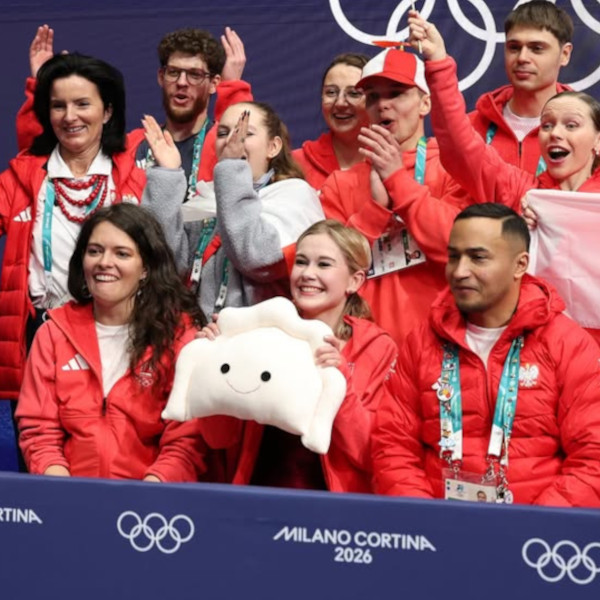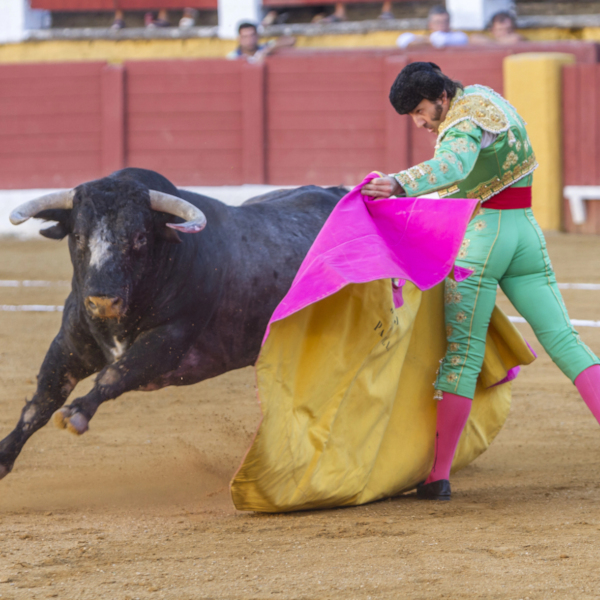On the 110th anniversary of his original Olympic victory, Jim Thorpe's gold medals are finally being reinstated. Thorpe, a member of the Sac and Fox nation and the first Native American to win an Olympic gold medal for the United States, competed in the 1912 Olympic Summer Games in Stockholm, Sweden. Considered one of the greatest all-around athletes in the history of modern sports, Thorpe's astounding performance in the pentathlon and decathlon earned him a gold medal and the title of Olympic champion in both events—titles which, until recently, had been all but expunged from official records.
Though there was no question of Thorpe's victory at the time of the medal ceremony, a year later in 1913 officials discovered he had violated the strict regulations regarding amateurism which were in place at the time. Prior to the Stockholm Games, Thorpe had played two seasons of minor-league baseball for pay. Upon learning this, the IOC stripped him of his medals, and struck his marks from the official record.
The reserved Thorpe, who was wary of fame and the media, chose not to battle for his medal status, apart from a letter he wrote to the Amateur Athletic Union (AAU). In it, he explained, “I did not know that I was doing wrong, because I was doing what I knew several other college men had done, except that they did not use their own names.” This claim was later echoed by Sally Jenkins for the Smithsonian in 2012, where she wrote: “Countless white athletes abused the amateurism rules and played minor-league ball with impunity.”
By disqualifying Thorpe a year after his victory, the AAU and the IOC had violated their own code of the 30-day window in which to contest a medal. In 1982, in an effort to acknowledge this disparity, the IOC granted Thorpe the title of co-champion for both events, and returned replica gold medals to the Thorpe family. However, this show of recognition was mere lip service. They never officially amended the record, and the incredible margins by which Thorpe outshone the competition were given no recognition.
It wasn't until 2020 that the IOC was again forced to reconsider their ruling when nonprofit organization Bright Path Strong (BPS), launched a campaign for the full, official restoration of Thorpe's legacy. This included a petition, which gathered over 75,000 signatures, as well as support of the National Congress of American Indians. BPS, which is named after Thorpe (his Indigenous name is Wa-Tho-Huk, which means “Bright Path”) worked with the IOC to finally achieve long-awaited justice. On July 15, 2022, the IOC announced that Thorpe would be reinstated as the sole champion of both events.
“We welcome the fact that, thanks to the great engagement of Bright Path Strong, a solution could be found,” said IOC President Thomas Bach in an official statement. “This is a most exceptional and unique situation, which has been addressed by an extraordinary gesture of fair play from the National Olympic Committees concerned.”
The athletes who had received Thorpe's gold medals in 1913—Hugo K. Wieslander, for the decathlon, and Ferdinand Bie, for the pentathlon, are now listed as silver medalists in their respective events. When the IOC contacted the surviving members of Wieslander's family, they confirmed that he “had never accepted the Olympic gold medal allocated to him, and had always been of the opinion that Jim Thorpe was the sole legitimate Olympic gold medallist.”
It's easy to understand Wieslander's point of view, as someone who had not only witnessed Thorpe's athleticism, but competed against him. In the decathlon, which consisted of 10 events over the course of three days, Thorpe's winning total of 8,412.95 points (of a possible 10,000) beat Wieslander by 688. He opened the event by sprinting the 100-meter dash in just 11.2 seconds, a time that wouldn't be achieved again until 1948.
Nedra Darling, BPS co-founder and citizen of the Prairie Band Potawatomi Nation, says, “We are so grateful this nearly 110-year-old injustice has finally been corrected, and there is no confusion about the most remarkable athlete in history.”
Jim Thorpe, who competed in the 1912 Olympic Summer Games in Stockholm, was the first Native American athlete to win a gold medal for the United States.
Considered one of the greatest all-around athletes in modern sports history, Thorpe earned a gold medal in both the pentathlon and decathlon.
In 1913, his medals were stripped after the IOC discovered he had violated the amateur regulations by playing minor-league baseball for pay. In this ruling, however, the IOC violated their own code of the 30-day window in which to contest a medal.
On July 15, 2022, the 110th anniversary of Thorpe's original victory, the IOC finally reinstated Thorpe's medals and officially named him the sole champion of both events.
🥇 IOC to display the name of Jim Thorpe as sole Stockholm 1912 pentathlon and decathlon gold medallist.
The change comes on the day of the 110th anniversary of Thorpe’s medal in decathlon.
Read more about it 👉https://t.co/crIIXvhaNJ pic.twitter.com/oSAjEoDKnJ
— IOC MEDIA (@iocmedia) July 15, 2022
h/t: [Smithsonian Magazine]
Related Articles:
In 1936, Two Japanese Olympians Combined Their Medals in a Touching Show of Friendship
Fascinating Video Reveals How Eliud Kipchoge Ran a Flawless Sub 2-Hour Marathon






















































































